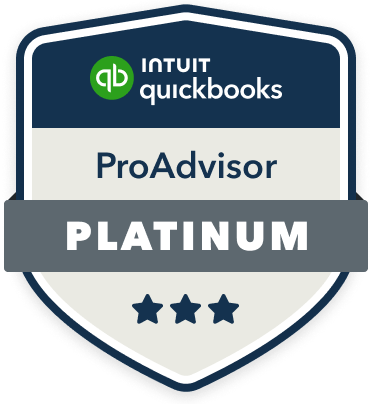From Start-Up to Success: A Comprehensive Guide to Financial Management for Small Businesses in Florida
In the sunshine state of Florida, small businesses are on the rise. However, navigating the financial landscape can be challenging for these budding entrepreneurs. That's where this comprehensive guide comes in. From start-up to success, we've got you covered with essential financial management tips and tricks. Whether you're a food truck owner in Miami or a boutique owner in Orlando, understanding the ins and outs of financial management is crucial for long-term success. In this guide, you'll discover the importance of proper budgeting, effective cash flow management, and the secrets behind strategic financial planning.
SYSTEMS AND SOFTWARE


We believe that financial management should not be a daunting task, but rather a strategic opportunity for growth. Our experts have carefully curated this guide to help small businesses in Florida take control of their finances and achieve their entrepreneurial dreams.
With practical advice and real-life case studies, you'll learn how to optimize your resources, maximize profitability, and avoid common financial pitfalls. Don't let managing your finances overwhelm you – let this guide be your roadmap to building a financially successful future for your small business in Florida.
Importance of financial management for start-ups
Starting a small business in Florida is an exciting endeavor, but without proper financial management, even the most promising start-ups can quickly run into trouble. Financial management is the backbone of any successful business, providing the foundation for growth and sustainability.
One of the key reasons why financial management is crucial for start-ups is the ability to make informed decisions. By understanding the financial health of your business, you can identify opportunities for growth, anticipate potential challenges, and make strategic decisions that will maximize your chances of success.
Furthermore, effective financial management allows start-ups to gain a clear understanding of their cash flow. By properly managing cash inflows and outflows, entrepreneurs can ensure that they have enough liquidity to cover their expenses, invest in growth opportunities, and weather any unexpected financial storms that may arise.
Lastly, financial management is essential for attracting investors and securing funding. Investors and lenders want to see that start-ups have a solid financial foundation and a clear plan for profitability. By demonstrating strong financial management practices, start-ups can instill confidence in potential investors and increase their chances of securing the necessary funding to fuel their growth.
Key financial concepts and terms
Before diving into the intricacies of financial management, it's important to familiarize yourself with some key financial concepts and terms. Understanding these concepts will help you navigate the world of finance and make informed decisions for your small business.
One of the most fundamental concepts in finance is cash flow. Cash flow refers to the movement of money in and out of your business. Positive cash flow occurs when the money coming into your business exceeds the money going out, while negative cash flow occurs when the opposite is true. It's important to maintain positive cash flow to ensure the financial stability of your start-up.
Another important concept is profit and loss. Profit is the amount of money left over after deducting expenses from revenue, while loss occurs when expenses exceed revenue. Monitoring your profit and loss is essential for understanding the financial health of your business and making necessary adjustments to improve profitability.
Additionally, understanding financial statements is crucial for small business owners. Financial statements, such as the balance sheet, income statement, and cash flow statement, provide a snapshot of your business's financial performance and help you track key metrics.
Setting financial goals for your small business
Setting clear financial goals is a fundamental step in effective financial management. By defining your goals, you can establish a roadmap for success and track your progress along the way.
When setting financial goals, it's important to make them specific, measurable, achievable, relevant, and time-bound (SMART). For example, instead of setting a vague goal like "increase revenue," a SMART goal would be "increase monthly revenue by 10% within the next six months."
Additionally, it's crucial to align your financial goals with your overall business objectives. Your financial goals should support your long-term vision and reflect the specific needs and aspirations of your small business.
Once you have set your financial goals, it's important to regularly monitor your progress and make adjustments as needed. By regularly reviewing your goals, you can identify any gaps or areas for improvement and take proactive steps to ensure you stay on track.
Creating a budget and financial projections
Creating a budget is a foundational step in financial management. A budget helps you allocate your financial resources effectively and provides a roadmap for your spending and investments.
To create a budget, start by identifying your fixed costs, such as rent, utilities, and salaries. These are expenses that remain relatively constant month-to-month. Next, identify your variable costs, such as raw materials or marketing expenses, which may fluctuate based on business activity.
Once you have identified your costs, it's important to estimate your revenue. This can be done based on historical data, market research, or sales projections. By comparing your revenue with your expenses, you can determine whether your business is operating at a profit or loss.
Financial projections are another important tool for small businesses. Projections allow you to forecast your future financial performance based on historical data and anticipated market trends. This can help you make informed decisions about investments, expansion opportunities, and pricing strategies.
Managing cash flow effectively
Cash flow management is a critical aspect of financial management for small businesses. Without proper cash flow management, even profitable businesses can experience financial difficulties.
One key strategy for managing cash flow is to closely monitor your accounts receivable and accounts payable. Accounts receivable refers to the money owed to your business by customers, while accounts payable refers to the money your business owes to suppliers and vendors. By ensuring timely payments from customers and negotiating favorable payment terms with suppliers, you can optimize your cash flow.
Another effective strategy is to implement a cash flow forecasting system. This involves estimating your future cash inflows and outflows to anticipate any potential shortfalls or surpluses. By having a clear picture of your cash flow, you can take proactive steps to address any financial gaps and ensure the stability of your business.
Additionally, it's important to build a cash reserve to cover unexpected expenses or emergencies. By setting aside a portion of your revenue for a rainy day, you can mitigate the impact of unforeseen financial challenges and maintain financial stability.
Understanding and managing business expenses
Managing business expenses is crucial for maintaining profitability and financial health. By optimizing your expenses, you can increase your bottom line and free up resources for growth and investment.
One key strategy for managing expenses is to conduct regular expense audits. This involves reviewing your expenses line by line and identifying any areas where costs can be reduced or eliminated. Look for opportunities to negotiate better deals with suppliers, explore alternative vendors, or streamline your operations to minimize wastage.
Additionally, implementing cost control measures can help you keep your expenses in check. This can include setting spending limits for different departments, implementing expense approval processes, or leveraging technology to automate and streamline expense tracking.
Furthermore, it's important to regularly review your overhead expenses. Overhead expenses, such as rent, utilities, and insurance, can add up quickly and significantly impact your bottom line. By periodically assessing these expenses and exploring cost-saving measures, you can optimize your overhead costs and improve your profitability.
Financial reporting and analysis for small businesses
Financial reporting and analysis play a crucial role in financial management for small businesses. By regularly reviewing and analyzing your financial data, you can gain valuable insights into your business's performance and make informed decisions for the future.
One key financial report is the balance sheet, which provides a snapshot of your business's financial position at a specific point in time. The balance sheet includes assets (what your business owns), liabilities (what your business owes), and equity (the difference between assets and liabilities).
Another important financial report is the income statement, also known as the profit and loss statement. The income statement shows your business's revenues, expenses, and profit or loss over a specific period. By reviewing your income statement, you can assess your business's profitability and identify any areas for improvement.
Lastly, the cash flow statement tracks your business's cash inflows and outflows over a specific period. This report provides insights into your business's liquidity and cash flow management. By analyzing your cash flow statement, you can identify any cash flow bottlenecks and take necessary actions to improve your cash flow.
Funding options for small businesses in Florida
Access to funding is a crucial factor for the success of small businesses in Florida. Fortunately, there are several funding options available to entrepreneurs looking to start or expand their businesses.
One common funding option is traditional bank loans. Banks offer various loan products designed for small businesses, such as term loans, lines of credit, and Small Business Administration (SBA) loans. These loans typically require a strong credit history and collateral but offer competitive interest rates and flexible repayment terms.
Another funding option is venture capital. Venture capital firms invest in early-stage businesses with high growth potential. In exchange for funding, venture capitalists often take an equity stake in the business and provide strategic guidance and support.
Additionally, crowdfunding has gained popularity as a funding option for small businesses. Crowdfunding platforms allow entrepreneurs to raise funds from a large number of individuals who contribute small amounts. This can be a viable option for start-ups looking to validate their business idea and gain early customer support.
Lastly, grants and government programs can provide funding opportunities for small businesses in Florida. These programs often target specific industries or demographic groups and offer financial assistance, mentorship, and resources to help businesses succeed.
Conclusion: Taking your small business to the next level with effective financial management
Effective financial management is a crucial component of small business success. By understanding the importance of financial management, mastering key financial concepts, setting clear financial goals, and implementing sound financial practices, you can take your small business in Florida to new heights.
Remember, financial management is not just about balancing the books; it's about leveraging your financial resources to drive growth, make informed decisions, and achieve your entrepreneurial dreams. So, take control of your finances, embrace strategic financial planning, and watch your small business flourish in the sunshine state of Florida.
With this comprehensive guide as your roadmap, you have the tools and knowledge to build a financially successful future for your small business in Florida. Don't let financial management intimidate you – embrace it as an opportunity for growth and a key driver of your entrepreneurial journey.
Schedule a free consultation with one of our experts at Fiskal to discuss any other concerns about keeping your business finances on track.












